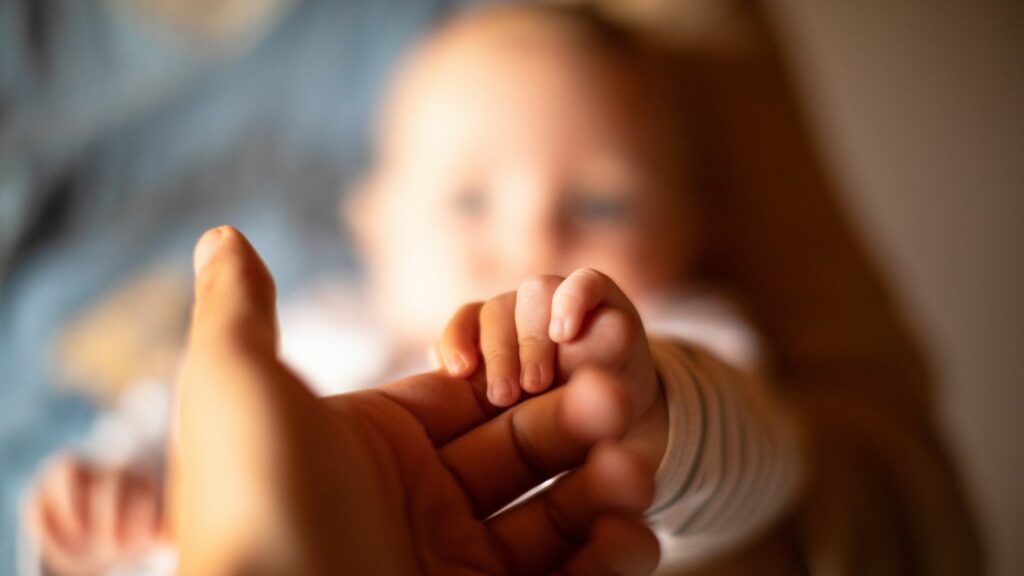COVID-19 ‘pandemic babies’ born with ‘fascinating’ protection against common condition, study finds | Science & Tech News

Lockdowns imposed during the COVID-19 pandemic saw changes in newborn babies that may have protected them against allergies, according to a study.
Infants raised when coronavirus social distancing restrictions were in place were found by Irish researchers to have more of the beneficial microbes acquired after birth from their mother, which could act as a defence against disease.
The scientists believe this led “pandemic babies” to have lower than expected rates of allergic conditions, such as to food, compared to pre-COVID babies.
The findings, published in the journal Allergy, highlighted the gut health benefits for the youngsters as a result of the COVID-19 lockdowns, including lower rates of infection and consequent antibiotic use, and increased duration of breastfeeding.
The ecosystem of naturally-occurring bacteria in the gut, known as the microbiome, plays an essential role in human health.
The researchers analysed faecal samples from 351 babies born in the first three months of the pandemic, comparing these with a pre-pandemic group.
Online questionnaires were used to collect information on diet, home environment and health.
Stool samples were collected at six, 12 and 24 months and allergy testing was performed at 12 and 24 months.
The study highlighted significant differences in the microbiome development of babies born during lockdown periods when compared to pre-pandemic babies.
Fewer infections reduced the need for antibiotics, which kill good bacteria. Pic: iStock
It revealed only about 5% of the lockdown babies had developed a food allergy at age one, compared to 22.8% in the pre-COVID group.
Fewer infections through not being exposed to germs also reduced the need for antibiotics, which kill good bacteria.
Of the lockdown babies only 17% needed an antibiotic by the age of one.
In the pre-pandemic group, 80% of infants had taken antibiotics by 12 months.
Read more on Sky News:
How pop music has changed over the Brit years
Musk sues OpenAI for ‘perverting’ the company’s mission
Professor Jonathan Hourihane, consultant paediatrician at Children’s Health Ireland Temple Street and joint senior author of the research, said: “This study offers a new perspective on the impact of social isolation in early life on the gut microbiome.
“Notably, the lower allergy rates among newborns during the lockdown could highlight the impact of lifestyle and environmental factors, such as frequent antibiotic use, on the rise of allergic diseases.
“We hope to re-examine these children when they are five years old to see if there are longer-term impacts of these interesting changes in early gut microbiome.”
Fellow joint senior author Liam O’Mahony, professor of immunology at University College Cork, said: “While we all start life sterile, communities of beneficial microbes that inhabit our gut develop over the first years of life.
“We took the opportunity to study microbiome development in infants raised during the early COVID-19 era when strict social distancing restrictions were in place, as the complexity of early life exposures was reduced and this facilitated a more accurate identification of the key early life exposures.
“Prior to this study it has been difficult to fully determine the relative contribution of these multiple environmental exposures and dietary factors on early-life microbiome development.”
He added: “One fascinating outcome is that due to reduced human exposures and protection from infection, only 17% of infants required an antibiotic by one year of age, which correlated with higher levels of beneficial bacteria such as bifidobacteria.
“The study has provided a rich repository of data, which we will continue to analyse and investigate in the future.”

Recent Comments